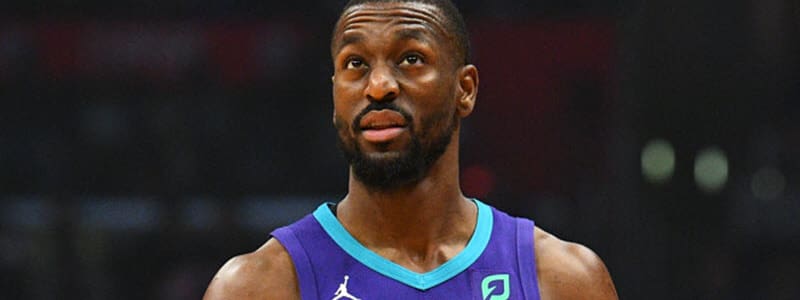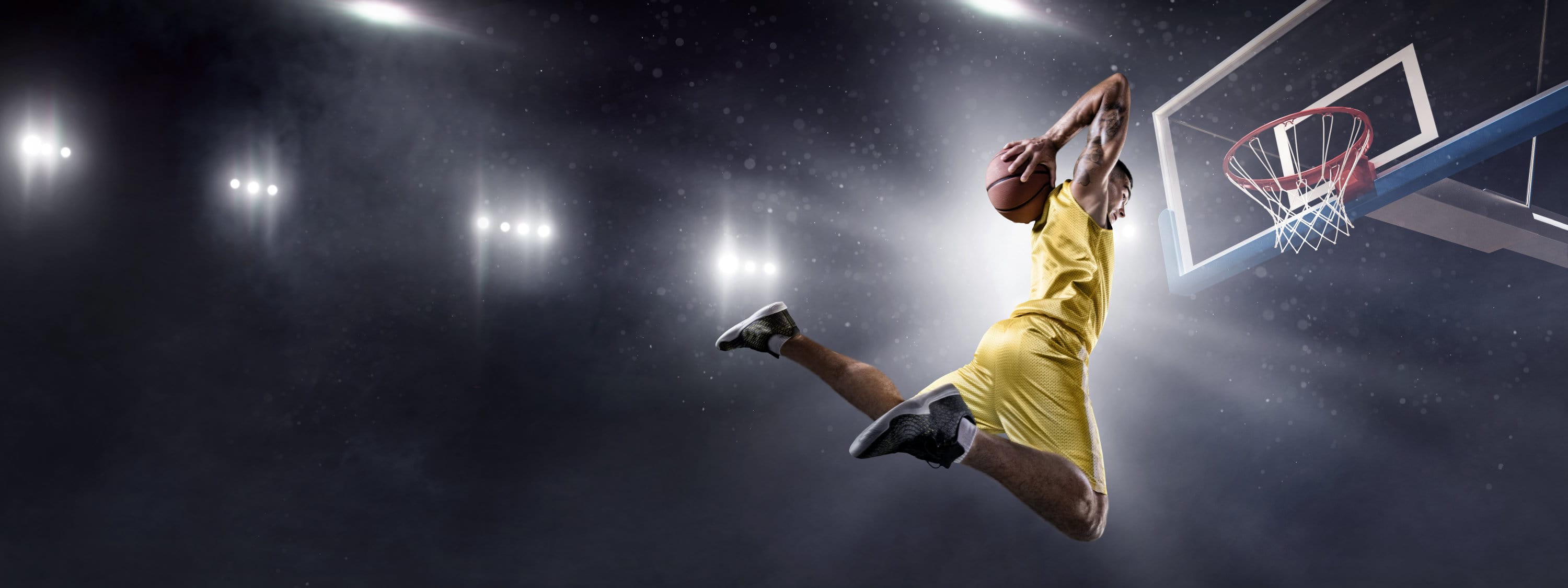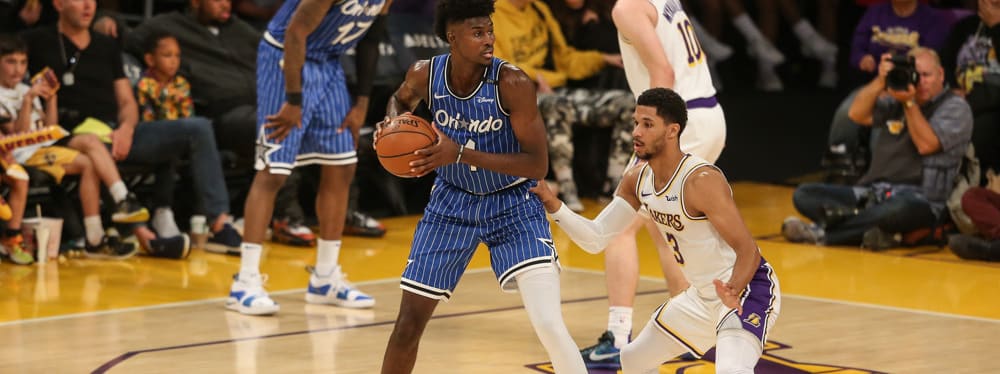Recent RotoWire Articles Featuring Courtney Lee
See More
For the second straight year, Lee operated as the Knicks' starting shooting guard, with his biggest contribution being his ability to extend defenses with his three-point shooting. Lee finished the year averaging 12.0 points per game, which included 1.5 three-pointers at a blistering 40.6 percent clip. That was his second consecutive campaign finishing above 40 percent from deep, and he also chipped in 45.4 percent from the field and 91.9 percent from the free-throw line, designating him as one of the most efficient players in the entire NBA at his position. He chipped in with 2.9 rebounds, 2.4 assists and 1.1 steals as well, while taking the floor for 30.4 minutes per game. Looking forward to the upcoming campaign, there's a chance Lee doesn't complete the year with the Knicks, as he's apparently on the trade block as a veteran that would likely fit well on a plethora of playoff teams. If he does remain with the Knicks, look for Lee to reclaim a starting role, though his minutes could take a slight hit if the organization wants to get youngster Frank Ntilikina more work in the backcourt. Consider Lee to be a three-point specialist with solid contributions in the steals department, though his low-usage role and potential for a slightly smaller workload on a lottery-bound team limits his overall utility a bit.
After signing a four-year, $48 million contract with the Knicks prior to the 2016-17 campaign, Lee was finally in line for some stability after playing for four different teams over four years. He instantly took a spot in the Knicks top unit, starting 74 of the 77 games he played in, while averaging 31.9 minutes in a fairly healthy workload. The sharpshooter's focus was once again to draw teams out to the perimeter. Lee averaged 1.4 three-pointers per game, with a 40.1 percent clip from beyond the arc. That was a big reason he was able to score 10.8 points per game, which was his best mark since the 2011-12 season. With 3.4 rebounds, 2.3 assists and 1.1 steals closing out his stat line, Lee added a little bit of everything, though those numbers weren't overly outstanding. With Carmelo Anthony likely being dealt away from the Knicks, that should provide more touches for nearly the entire starting lineup. Lee should be one of those that benefits, as the Knicks will be losing a player that put up 18.8 shot attempts per game. Look for those to be distributed out elsewhere, though a decent portion could go to the up-and-coming Kristaps Porzingis. Still, Lee should be able to boost his points per game average a season ago, although it doesn't seem likely he'll add much more in the rebound, assist and steal categories.
The Knicks signed the well-traveled Lee to a four-year, $50 million contract in July, filling the void at shooting guard created by Arron Afflalo's decision not to re-sign with New York. Though the 31-year-old has never averaged more than 12.5 points per game in his eight NBA seasons, he's settled into a comfortable role as a lock-down defender on the perimeter and a marksman from long distance. Lee is a 38.4 percent career three-point shooter and 84.6 percent career free-throw shooter, making him someone coaches love to have on the floor during crunch time. With Carmelo Anthony, Kristaps Porzingis and Derrick Rose all ranking ahead of him in the pecking order for shot attempts, Lee isn't expected to see much volume over the course of the season, and his real-life value should comfortably exceed what he provides in the fantasy realm.
The soon-to-be 30-year-old is entering a contract year coming off averages of 10.1 points, 2.3 rebounds, 2.0 assists, 1.0 steal, and 0.2 blocks in 31 minutes per game during 77 regular season games in 2014-15. Lee was among elite company, having shot 45 percent from the field, 40 percent from three, and 86 percent from the foul line, but he only took 8.4 field goal attempts per game. In 11 playoff games, he attempted 9.1 field goal attempts per game, raising his scoring average to 13.3 points per game while converting on 55 percent from the field, 47 percent from downtown, and 96 percent from the free-throw line. That kind of play is probably unsustainable for an entire year, though Lee did post an equally spectacular stretch of shooting over the first couple months of the 2014-15 season. With the unselfish Marc Gasol demanding double-teams down low, Lee will likely continue to have plenty of opportunities to score and make plays for the Grizzlies going forward.
Lee is entering his seventh season. Last season, he played 49 games (47 starts) with the Grizzlies after being acquired from the Celtics, where he played 30 games in a reserve role. For the Grizzlies, he averaged 11.0 points, 2.8 rebounds, 1.7 assists, 0.9 steals, and 0.4 blocks in 30 minutes per game while shooting 48 percent from the field on 8.8 attempts per game, 35 percent from three-point range on 2.9 attempts per game, and 90 percent from the free-throw line on 1.8 attempts per game. Lee also started all seven playoff games versus the Thunder, averaging 10.0 points, 2.0 rebounds, 1.6 assists, 0.7 steals, and 0.3 blocks in 32 minutes per game. The Grizzlies signed Vince Carter and drafted Jordan Adams, and they still have Tony Allen to use on the wing, too. Allen has displayed the ability to defend the elite wings in the NBA, and Carter and Adams both have the size and strength to spend some time at the three as well. Tayshaun Prince is rapidly declining, Quincy Pondexter (coming back from a stress fracture in his foot) has yet to earn a plentiful role thus far during his career, and Mike Miller joined the Cavaliers. Given the circumstances, it's certainly possible that Lee will continue to see sufficient playing time despite the apparent logjam at his position. With that said, given Lee's inability to consistently contribute in areas besides scoring, it's unlikely he'll hold much fantasy value in 2014-15 outside of the deepest leagues.
It's fair to say that despite Lee's 25 minutes per game last year, he was a disappointment. He is a safe, reliable bench player capable of playing shooting guard and small forward and is classic waiver wire fodder in most fantasy hoops leagues. He or Jordan Crawford could be released when Rondo returns this winter.
Lee stepped in for the oft-injured Kevin Martin last year, starting 26 games. Lee was so successful as a starter (14.1 points, 1.6 steals and 3.0 rebounds per game in March) that he landed a starting gig with the Celtics this year. While Bradley may be the starting shooting guard by season's end, expect Lee to produce solid steals, points and three-point numbers all year.
Lee is a scoring swingman who can shoot the three and knock down his free throws. He's also a good source of steals when he gets sufficient minutes. He'll likely back up Kevin Martin and Chase Budinger at shooting guard and small forward, respectively, but there's a chance he could overtake Budinger for a starting role.
Lee was a decent play last year, finishing right around the top-100 threshold. But that says more about his situation from last season than the one going forward. Lee was traded to the Rockets in early August as part of a four-team deal. The trade hurts Lee's value a bit because he goes from potential starter in New Jersey to backup in Houston. The one possible silver lining: the man he'll be backing up is the perpetually injured Kevin Martin.
Lee has a wide-open window of opportunity in New Jersey this year, where he’ll step in and take on a prominent role right away. He’s got little competition for his starting job and should see a minimum of 30 minutes per game. His per-36 minute averages in Orlando weren’t awe-inspiring by any means, but he wasn’t relied upon to carry much of the offensive burden with the likes of Dwight Howard, Rashard Lewis and Hedo Turkoglu on his team. He’ll have to adjust to his new role within the Nets’ team context, but he should emerge as a solid source of treys, steals and free-throw percentages while providing modest contributions in rebounds and assists. He’s got a lot of untapped potential, and he’ll have an opportunity to show what he can do in extended run.
Lee was a consistent scorer his senior season at Western Kentucky. He was a first-round pick, but it remains to be seen if he can get his shot off against players at the top level. Lee's career path and size are similar to that of Detroit's Rodney Stuckey, who found himself receiving extended playing time at the end of last season. There are a lot of combo guard-forwards on this roster, but if Lee can develop the way Stuckey did last year, he could force his way into the rotation by the second half of the season.
Lee was a consistent scorer his senior season at Western Kentucky. He was a first-round pick, but it remains to be seen if he can get his shot off against players at the top level. Lee's career path and size are similar to that of Detroit's Rodney Stuckey, who found himself receiving extended playing time at the end of last season. There are a lot of combo guard-forwards on this roster, but if Lee can develop the way Stuckey did last year, he could force his way into the rotation by the second half of the season.












